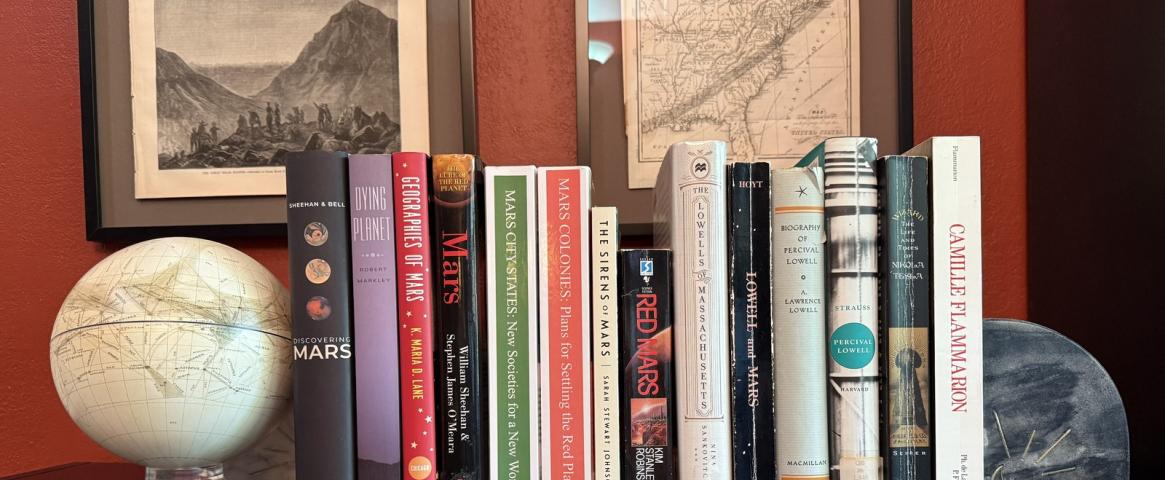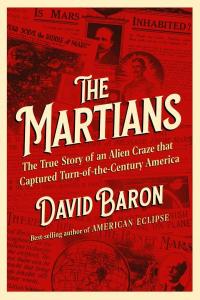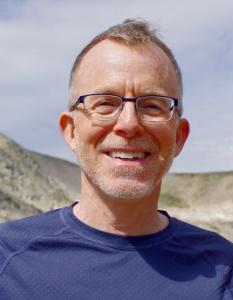
David Baron—The Martians: The True Story of an Alien Craze That Captured Turn-of-the-Century America
THE TRUE STORY OF AN ALIEN CRAZE
THAT CAPTURED TURN-OF-THE-CENTURY AMERICA
David Baron
Liveright, August 26, 2025
Hardcover, $29.99, eBook, $28.49
Audio Book, $13.99
Hardcover ISBN-13: 978-1324090663
eBook ASIN: B0DK4614VZ
Audio Book ASIN: B0FC7PXSYF
Baron reports:
My writing, long focused on contemporary science, took a turn with my second book American Eclipse, which was a work of narrative science history. I so enjoyed the archival research and bringing an old story to life that I decided to try it again.
I spent months exploring nineteenth-century science and brainstorming modern-day topics that might benefit from historical context. One day, hearing of Elon Musk’s dreams of colonizing Mars and NASA’s evidence that the red planet might once have been habitable, I recalled a whisper of memory from childhood.In 1980, watching Carl Sagan’s Cosmos series, I learned about Percival Lowell, an erudite astronomer who had seen lines on Mars, interpreted them as irrigation canals, and fooled himself and a good portion of the public into believing in the existence of Martians.
What convinced me that I had found the right topic came when I dug into newspaper archives. In the early 1900s, even the sober New York Times printed banner headlines proclaiming the existence of a Martian civilization, and Nikola Tesla claimed he had received Martian radio signals. Here was a story about Mars, mass delusion, scientific obsession, the power of imagination—topics of perennial interest.
When my agent and editor endorsed the book idea, I dove in. I had no idea that it would become a seven-year odyssey. I am grateful to the Alfred P. Sloan Foundation for grant support and to the Library of Congress, which appointed me Chair in Astrobiology (a fellowship with a highfalutin name).
I don’t use any special software for keeping track of my enormous volume of research materials. I just use Word. I maintain a lengthy chronology of everything I’ve found, and in my manuscript, I footnote everything (for myself, not the reader) so I don’t forget how I know what I’ve written.
Although writing science history is neither quick nor easy, there is a side benefit. Anything published in the United States before 1930, including pictures, is in the public domain. That meant I was able to fill The Martians with more than one hundred historical illustrations, including depictions of the putative Martians themselves, without having to track down copyright holders or pay hefty royalties.
Contact info:
- David Baron: 303-641-3417, dhbaron@gmail.com
- Baron's website: https://davidbaronauthor.com
- Book:
- Publicist: Clio Hamilton, chamilton@wwnorton.com
- Agent: Todd Shuster, tshuster@aevitascreative.com
NASW members: will your book be published soon? Promote it by submitting your report for Advance Copy.
Tell your fellow NASW members how you came up with the idea for your book, developed a proposal, found an agent and publisher, funded and conducted research, and put the book together. Include what you wish you had known before you began working on your book or what you might have done differently.
See https://www.nasw.org/advance-copy-submission-guidelines. NASW member login required.
View Advance Copy archives at https://www.nasw.org/member-article/advance-copy.
Thinking of writing a book? If you are a NASW member, you may access a list of more than 200 books and online resources to help you craft your book proposal, find an agent and funding sources, negotiate your contract, learn about self-publishing, publicize and market your book, and more at https://www.nasw.org/article/write-book.
View the recording of an Advance Copy Virtual Business Chat, A Primer for Authors on Book Publicity. NASW member login required.
View the recording of a Virtual Business Chat presented by NASW’s Freelance Committee and Advance Copy column Writing Wikipedia Profiles. NASW member login required.
View the recording of a recent Virtual Skills Chat presented by NASW’s Editing Committee How to Break into Editing. NASW member login required.
View the recording of a recent Virtual Skills Chat presented by NASW’s Freelance Committee Using Generative A.I. as Writers and Editors. NASW member login required.
Plan to attend the 1 p.m. EDT Sept. 4 Virtual Skills Chat presented by NASW’s Freelance Committee The Existential Challenges of Self-Promotion. NASW member login required.
Send book info and questions about book publishing to Lynne Lamberg, NASW book editor, llamberg@nasw.org.
Follow @lynnelamberg.bsky.social and @LynneLamberg for news about NASW authors, science/medical books, and writing.
Banner image adapted from original photo by David Baron.
NASW invites publishers and publicists to purchase NASW website ads to promote their authors and books via NASW’s self-service purchasing portal.
Advance Copy
The path from idea to book may take myriad routes. The Advance Copy column, started in 2000 by NASW volunteer book editor Lynne Lamberg, features NASW authors telling the stories behind their books. Authors are asked to report how they got their idea, honed it into a proposal, found an agent and a publisher, funded and conducted their research, and organized their writing process. They also are asked to share what they wish they’d known when they started or would do differently next time, and what advice they can offer aspiring authors. Lamberg edits the authors’ answers to produce the Advance Copy reports.
NASW members: Will your book be published soon? Visit www.nasw.org/advance-copy-submission-guidelines for information on submitting your report.
Publication of NASW author reports in Advance Copy does not constitute NASW's endorsement of any publication or the ideas, values, or material contained within or espoused by authors or their books. We hope this column stimulates productive discussions on important topics now and in the future as both science and societies progress. We welcome your discussion in the comments section below.



